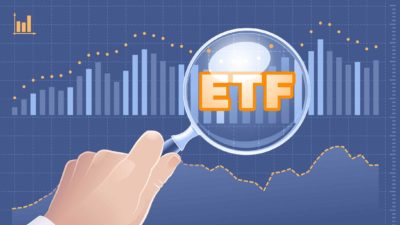Imagine this: You wake up one morning, crusty-eyed, having wrestled crocodiles all night in a restless sleep, memories of last night's nightmares.
As you try to peel your eyes open, the first thing on your mind is your portfolio. "It's dividend time, baby", you think to yourself, eyes still glued shut, smile stretched sideburn to sideburn. Bed covers in situ.
And of course, it is dividend time. That time of the year when companies return their hard earned profits to shareholders, with no further use for them to grow their business.
That business you've lasered in on for the past three months is set to pay a set of fat, chunky, mouth-watering dividends to shareholders in the coming weeks. Just in time for Christmas. "Think I'll buy a plane", you joke, smirkingly.
You've run the numbers. The business is solid. Bastion-like in fact. Profits are growing, and it looks "undervalued" based on sound analysis of the figures. Ka-ching! Bonus. You've got this nailed.
"Ah", you mumble out loud confidently, swiping your phone to unlock, "I'll just buy that stock today, and I'll qualify for that handsome divi…".
Checking your brokerage app, you instantly freeze, ice piercing through your spine and permeating throughout your distal limbs. Again you mumble, this time with shame and regret. "Oh dear".
"Why?!" you moan repeatedly; Buster, your British Bulldog, staring, head tilted at your manic state.
You realise it in full. You forgot to buy the stock before the ex-dividend date.
Not all ex's are bad news
The above story might seem far-fetched, but it's all too common a phenomenon for investors who aren't up to speed with key dates.
The ex-dividend date is the last day you can purchase shares in a business to qualify for its upcoming dividend payment.
Miss that date, and you end up like the gentleman in our scenario above. No shares, and no payment for the income account. And you would have missed some of the biggest global payouts in recent years.
With that, two shares are set to go ex-dividend next week, Incitec Pivot Ltd (ASX: IPL) and Dalrymple Bay Infrastructure Ltd (ASX: DBI).
Here are the key details on each ex-dividend
When do these shares go ex-dividend?
Both Incitec Pivot and Dalrymple Bay Infrastructure have ex-dividend dates on December 3.
To be eligible for their upcoming dividends, you'll need to own the shares by 2 December. Importantly, it must be by the 2nd. Missing this cutoff means you'll forgo the distributions this period.
Incitec Pivot is distributing 6.3 cents per share as a fully franked dividend, with payment scheduled for 18 December.
Meanwhile, Dalrymple Bay – owner of the Hay Point coal terminal in Mackay, the world's largest – is offering a 5.625 cents per share distribution.
This consists of a fully franked dividend of 3.8551 cents and a partial loan note repayment of 1.7699 cents, payable on 20 December.
A nice little Christmas present for shareholders in these businesses if you ask me.
What does ex-dividend mean for investors?
Dividend stocks like these often experience share price adjustments equivalent to the dividend amount on their ex-dividend dates.
For instance, Incitec Pivot's share price will dip slightly on 3 December to account for the 6.3 cents per share payout.
After all, that cash (also known as capital in investor circles) is leaving the company and entering shareholder hands.
Meanwhile, dividend trends for both companies are interesting.
Dalrymple Bay's quarterly payout is consistent with management's guidance of "total distributions for TY24/25 of 22.5 cps representing a yield of 6.7%".
And despite Incitec Pivot's payment history from 2021 to date, the stock has been choppy this year.
CLSA recently downgraded Incitec Pivot to a hold with a price target of $3.20, citing limited upside at its current valuation.
Foolish takeaway
These two companies are set to go ex-dividend next week, so if you intend to qualify for their payments, don't miss the key dates.
Keep an eye on the price action following the respective dates as well.
In the last 12 months, Incitec Pivot is up 12%, whereas Dalrymple Bay shares have rallied 24%.









